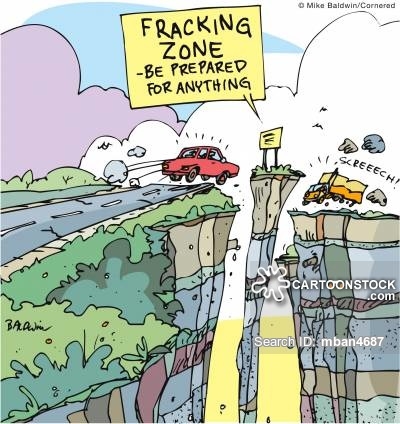Historically innovations have often entered society at a controversial level, where the benefits and costs are weighed up against each other. The engineers that put in the time and effort to improve existing technologies are faced with the moral dilemmas that society imposes on their ideas. The work of an engineer is not solely based on the technological part, which seems like the most important factor of an innovation. However without the proper requirements the innovative way of thinking will be seen as insufficient for actual implementation. The classic struggles of finding a balance between safety and efficiency, security and privacy, accountability and confidentiality, are therefore issues of value that engineers and governments are troubled with.
The issues presented by extracting gas through ‘fracking’ in the Netherlands is a clear example of this struggle. The Groningen Gas field was developed in the 1960s and was the largest of its kinds in Western Europe. The Dutch government was pushed to find new ways to extract gas, as there was a growing shortage of natural gas. From the beginning the politics in the Netherlands had been pro-shale gas, as well as the Dutch Energy Council which voiced its support in February 2011(Article on shale gas in the Netherlands). The government and Dutch Energy council in this instance are the parties that identify the upcoming problem, hence agree that changes are necessary and support innovation. The first setback that this innovation faced was the unlawful test drilling performed by a company that had been granted permission by local authority Boxtel. This was soon followed by concerns of Dutch environmental groups, civilians and enterprises complaining about contamination of drinking water, the release of methane as a result of hydraulic fracturing, and the potential triggering of earthquakes. This is where moral overload plays its part, introducing various stakeholders with conflicting goals.
On one hand we have the controlling government, pro-shale gas and innovation, and on the other the stakeholders that are directly affected by the changes imposed by the government. The government is tended to approach the problem with a purely factual method, considering the simple issue of a lack of natural gas and a gap in the energy business which could present a new profit industry. However, seeing as they are not the only stakeholders, they are forced to take into account the emotional factor which cannot be ruled out during debates concerning risky technologies such as fracking. By doing this the balance that I earlier mentioned is regained by weighing the pro’s and con’s against each other in a democratic fashion. The idea of this approach is that it creates a better base for the possible establishment of well-grounded policies. In this way safety is considered yet perhaps at the cost of efficiency, while years go by to create a safe way to extract gas, time and profit are lost. The accountability that is constantly demanded by citizens, business owners and other governments, could negatively affect innovation by withholding ideas from being shared in fear of public disgracement.
